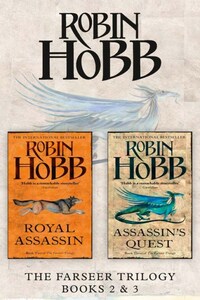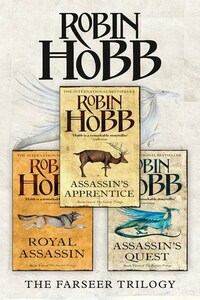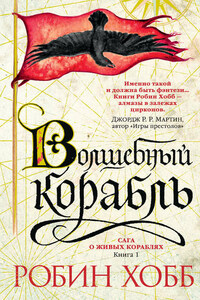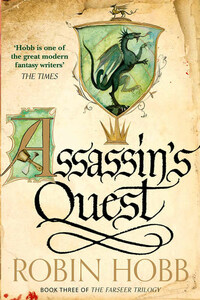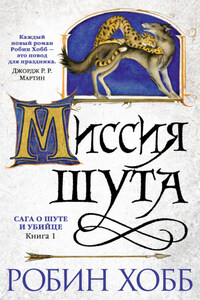HarperVoyager An Imprint of HarperCollinsPublishers 77–85 Fulham Palace Road, Hammersmith, London W6 8JB
www.harpervoyagerbooks.com
Royal Assassin Copyright © Robin Hobb 1996
Assassin’s Quest Copyright © Robin Hobb 1997
Cover layout design © HarperCollinsPublishers Ltd
Robin Hobb asserts the moral right to be identified as the author of this work
All rights reserved under International and Pan-American Copyright Conventions. By payment of the required fees, you have been granted the nonexclusive, nontransferable right to access and read the text of this e-book on-screen. No part of this text may be reproduced, transmitted, downloaded, decompiled, reverse engineered, or stored in or introduced into any information storage and retrieval system, in any form or by any means, whether electronic or mechanical, now known or hereinafter invented, without the express written permission of HarperCollins e-books.
Ebook Edition © JUNE 2013 ISBN: 9780007531493
Version 2018-06-20
HarperCollinsPublishers has made every reasonable effort to ensure that any picture content and written content in this ebook has been included or removed in accordance with the contractual and technological constraints in operation at the time of publication.
Why is it forbidden to write down specific knowledge of the magics? Perhaps because we all fear that such knowledge would fall into the hands of one not worthy to use it. Certainly there has always been a system of apprenticeship to ensure that the understanding of magic is passed only to those trained and judged worthy of such knowledge. While this seems a laudable attempt to protect us from unworthy practitioners of arcane lore, it ignores the fact that the magics are not derived from this specific knowledge. The predilection for a certain type of magic is either inborn or lacking. For instance, the ability for the magics known as the Skill is tied closely to blood relationship to the royal Farseer line, though it may also occur as a ‘wild strain’ amongst folk whose ancestors came from both the Inland tribes and the Outislanders. One trained in the Skill is able to reach out to another’s mind, no matter how distant, and know what he is thinking. Those who are strongly Skilled can influence that thinking, or have converse with that person. For the conducting of a battle, or the gathering of information, it is a most useful tool.
Folklore tells of an even older magic, much despised now, known as the Wit. Few will admit a talent for this magic, hence it is always said to be the province of the folk in the next valley, or the ones who live on the other side of the far ridge. I suspect it was once the natural magic of those who lived on the land as hunters rather than as settled folk; a magic for those who felt kinship with the wild beasts of the woods. The Wit, it is said, gave one the ability to speak the tongues of the beasts. It was also warned that those who practised the Wit too long or too well became whatever beast they had bonded to. But this may be only legend.
There are the Hedge magics, though I have never been able to determine the source of this name, which are both verified and suspect, including palm reading, water gazing, the interpretation of crystal reflections, and a host of other skills that attempt to predict the future. In a separate unnamed category are the magics that cause physical effects, such as invisibility, levitation, giving motion or life to inanimate objects – all the magics of the old legends, from the Flying Chair of the Widow’s Son to the North Wind’s bewitched tablecloth. I know of no people who claim these magics as their own. They seem to be solely the stuff of legend, ascribed to folk living in ancient times or distant places, or beings of mythical or near mythical reputation: dragons, giants, the Elderlings, the Others, pecksies.
I pause to clean my pen. My writing wanders from spidery to blobbish on this poor paper. But I will not use good parchment for these words; not yet. I am not sure they should be written. I ask myself, why put this to paper at all? Will not this knowledge be passed down by word of mouth to those who are worthy? Perhaps. But perhaps not. What we take for granted now, the knowing of these things, may be a wonder and a mystery someday to our descendants.
